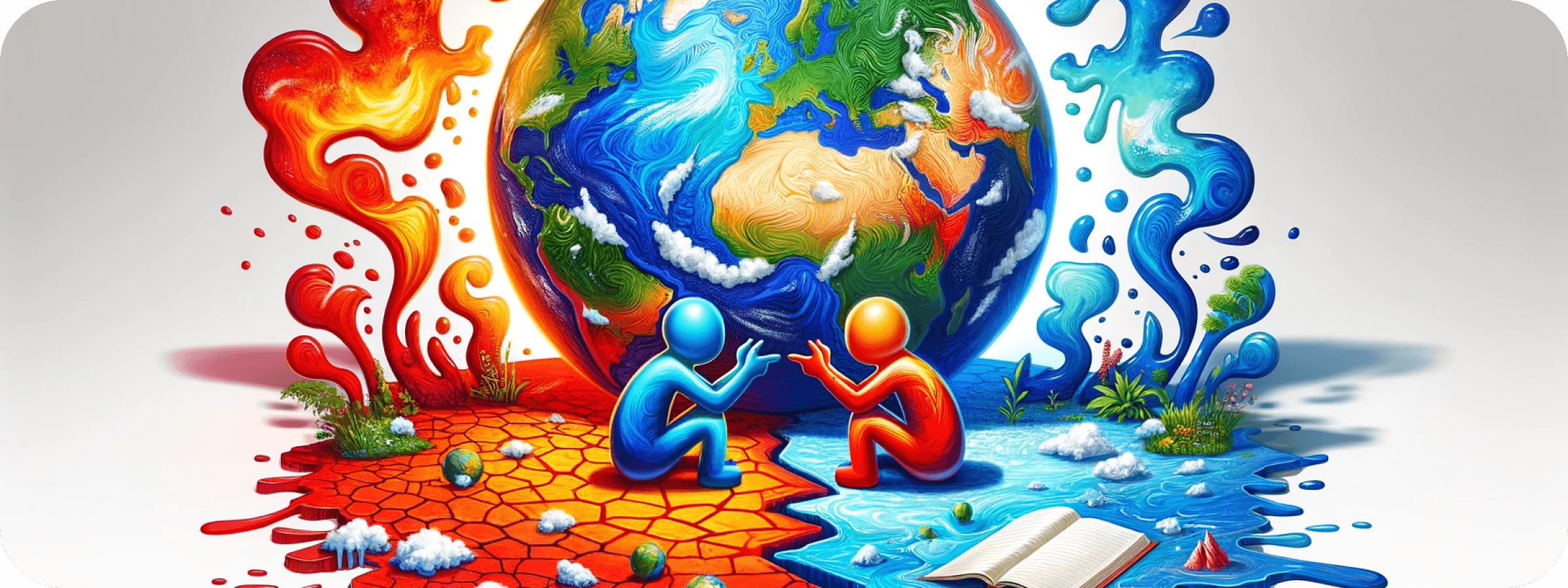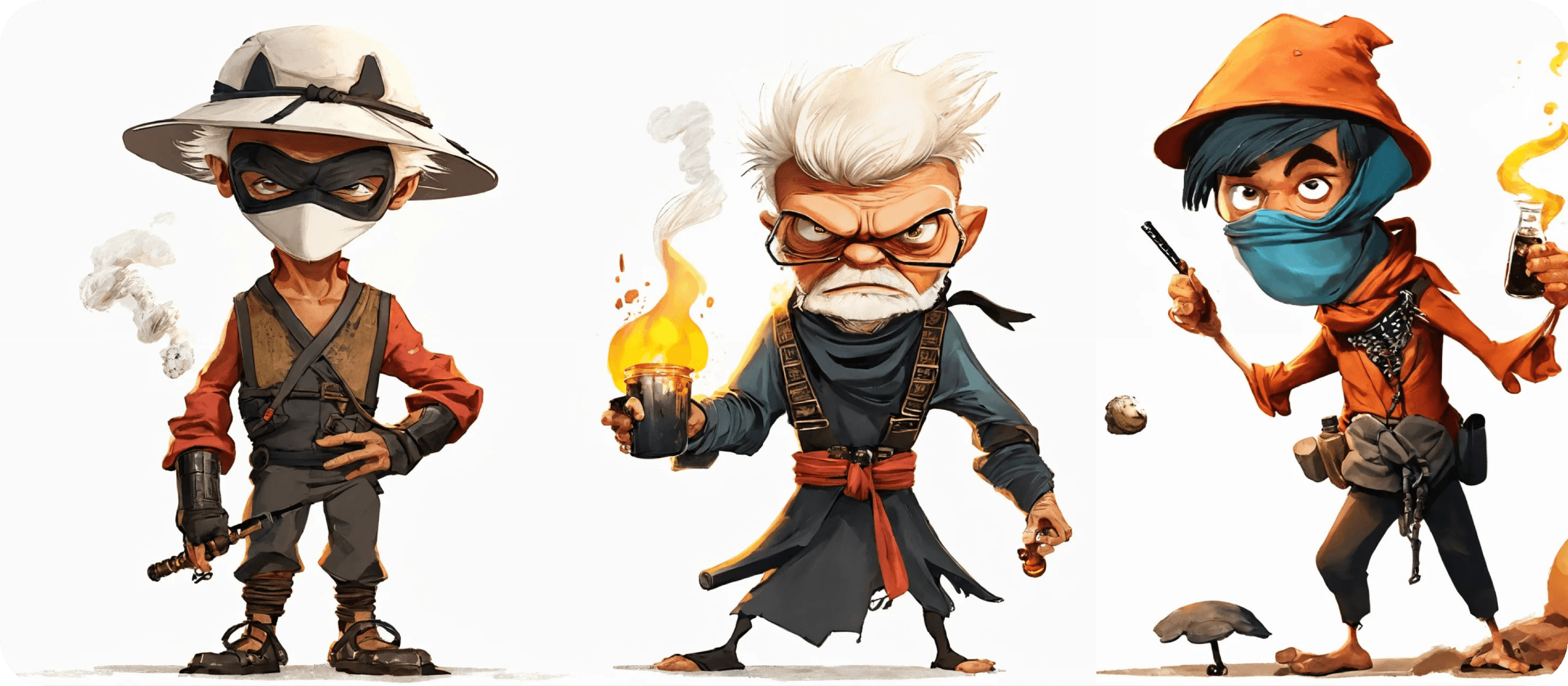
Demystifying Climate Change: Your Essential Guide to the Planet's Hottest Topic
The Climate Conundrum Unpacked
Hey there, climate crusaders and weather watchers! Welcome to the epicenter of Earth's hottest conversation—climate change. You've probably heard the term tossed around like a beach ball at a summer concert, but what's the real deal, and why should it matter to you? Grab your favorite drink and settle in, because we're about to decode this planetary puzzle.
Imagine Earth as your trusty cozy blanket, keeping you snug and warm. Now, picture someone cranking up the heat just a bit too high. That's basically what's happening to our planet, but instead of a sneaky roommate, it's due to a mix of gases called greenhouse gases. These gases, like CO2 (that's carbon dioxide, not the fizzy drink!), hang out in the atmosphere, trapping heat from the sun and causing our planet to warm up.
But wait, before you start picturing Earth with a sunburn, let's address the big question: is this just a natural cycle, or are we, as humans, stirring the climate pot? Our love for fossil fuels has pumped an excessive amount of CO2 into the atmosphere, throwing off the natural balance.
Why care? Because climate change affects where we live and what we eat. But don't fret! Understanding the issue is the first step to fixing it, and that's where this article comes in.
Think you know a lot about climate change already?
Why not put your knowledge to the test with our quiz? Click the red button “Take quiz” and see how much you really know about climate change!
The Greenhouse Effect Demystified
Let's back to our cozy blanket. Picture Earth as your favorite spot on the sofa, snuggled up in a warm, fuzzy blanket. Now, imagine that blanket is made of special gases, like CO2, methane, and water vapor. These gases are trapping heat from the sun and keeping our planet just the right temperature for life to thrive. Without this blanket, Earth would be as chilly as a polar bear's picnic.
But here's the twist: like any good blanket, too much can make you sweat. The same goes for Earth's blanket of greenhouse gases. When we burn fossil fuels like coal, oil, and gas, we're adding extra layers of blankets. And just like piling on too many blankets, this extra layer is making Earth hotter than a summer in the Sahara.
Imagine this: Earth is like a giant greenhouse, and we're turning up the heat. Scientific data shows that over the past century, the Earth's average temperature has risen by about 1.2°C (2.2°F). This might not sound like much, but just like a fever, even a small increase can have big consequences.Think of it this way: when you have a fever, your body gets too hot, and when your body temperature is 37.8°C instead of 36.6°C you start feeling uncomfortable.
The same thing is happening to our planet. Ice caps are melting, sea levels are rising, and extreme weather events are becoming more frequent and severe. It's not just about feeling a bit warmer—it's about disrupting the delicate balance of life on Earth. Unless we take action to reduce our greenhouse gas emissions, the Earth could warm by another 1.5°C (2.7°F) or more by the end of this century, with catastrophic consequences for our planet and future generations.

Ice, Ice, Melting
In a plot twist that could rival any sci-fi blockbuster, Earth's icy giants—from Greenland's vast ice caps to Antarctica's sprawling tundras—are quietly dwindling. This isn't just a distant worry; it's a pressing issue that's reshaping our world today. Imagine cities like New York, Amsterdam, Miami, and Shanghai developing unwanted waterfronts right in their downtown areas. However, the repercussions extend beyond these swamped urban centers. The seemingly modest rise in sea levels—about 21-24 cm since 1880—masks a dramatic impact on our planet. Notably, a third of this increase has occurred in just the last 25 years, heightening threats to both human and ecological stability.
The rate of glacier disappearance has spiked by 57% since the 1990s. If this trend continues, Earth could be devoid of glaciers within 100-150 years. For instance, the iconic snows of Kilimanjaro have diminished by more than 80% since 1912. Similarly, glaciers in India's Garhwal Himalayas are retreating so quickly that most of the central and eastern glaciers there could vanish by 2035. Meanwhile, Arctic sea ice has shrunk by about 10% over the last 30 years.
The repercussions of these melting ice masses are severe, affecting nearly 2 billion people who rely on them for fresh water, setting the stage for potential large-scale migrations that could displace up to 200 million people by 2050. This is akin to casting entire nations in a migration saga no one volunteered for. The main villains? The high consumption and industrial activities of developed countries, which contribute disproportionately to global warming. This unfolding drama doesn't just affect the regions immediately losing their ice; it also strains even the most remote and stable countries as migrants seek safer grounds and disrupted food supplies lead to higher grocery bills and food shortages.
How Climate Change Affects Your Food
Ever thought about the journey your food takes from the farm to your plate? Well, buckle up, because climate change is adding some unexpected twists and turns to that journey. Picture this: your favorite fruits and veggies, like tomatoes and strawberries, need just the right amount of sun, water, and temperature to grow juicy and delicious.
But with climate change throwing a tantrum, we're seeing more extreme weather—like crazy heatwaves and unexpected frosts—messing with these delicate crops. This means your summer salads might become a luxury item, with prices as high as a concert ticket. And it's not just about what's on your plate; climate change is also affecting how food gets to you. Think about the trucks and planes that transport your favorite snacks—they guzzle fossil fuels, releasing even more heat-trapping gases into the atmosphere. It's like trying to deliver a pizza in rush-hour traffic—it's slow, expensive, and not very eco-friendly.
So, next time you're munching on a snack, remember, your food's journey is more than just farm to fork—it's going to be an expensive rollercoaster ride through a changing climate if we just ignore and do nothing.
Climate change is the greatest threat to every living thing on Earth, and the single biggest threat to our food security.
Weathering the Storm
Hold onto your hats, folks, because climate change is throwing a weather tantrum like never before! Imagine our weather patterns as a DJ's playlist—usually, it's a smooth mix of sunny days and gentle showers. But thanks to climate change, someone's been messing with the controls, and now we're getting hit with the ultimate shuffle mode. Heatwaves are cranking up the temperature, hurricanes are crashing the coastal party more often, and don't even get me started on the wild winter weather! It's like the weather has gone rogue, and unless we start dancing to a greener beat, these extreme weather events are here to stay.
Science backs up this weather mayhem. Data shows that the intensity and frequency of extreme weather events, like hurricanes, droughts, and heavy rainfall, have increased in recent years. For example, the number of intense hurricanes in the Atlantic has doubled over the past century, and they're getting stronger and more destructive. It's like the weather gods are on a power trip, and we're caught in the crossfire.
But it's not just about the big, headline-grabbing events. Climate change is also playing tricks on our day-to-day weather. Remember that freak heatwave last summer that made you question if hell had relocated to your backyard? Yeah, that's the kind of weather weirdness we can expect more of if we don't start taking climate change seriously.
Fossil Fuels: The Good, the Bad, and the Ugly
Let's talk about the big three: coal, oil, and gas. These bad boys have been fueling our world for centuries, powering everything from our morning commute to our late-night Netflix binges. But here's the kicker: they're also the villains in our climate change saga.
Coal, for instance, is like the grumpy old grandpa, spewing out smoke and fumes into the atmosphere. It's estimated that burning coal alone contributes to about 44% of CO2 emissions worldwide, making it one of the largest contributors to greenhouse gas emissions. Coal combustion also releases other pollutants like sulfur dioxide, which can contribute to acid rain and other environmental issues.
Oil, on the other hand, is like that careless partygoer, promising joy and relax but leaving a mess in its wake. Like coal, burning oil for energy releases CO2 into the atmosphere (33%), contributing to the greenhouse effect. Oil spills and leaks also release methane, a potent greenhouse gas, into the atmosphere, further exacerbating the problem.
And gas? It's like the sneaky ninja, quietly slipping into our lives with a gentle whisper and a potent impact. Natural gas, while cleaner than coal and oil, still releases CO2 when burned, contributing to around 22% of global CO2 emissions. Additionally, natural gas is primarily composed of methane, which has up to 30 times higher global warming potential than CO2.
Keep using fossil fuels is like feeding candy to a hyperactive toddler—it might keep them entertained for a while, but it's a recipe for disaster in the long run. Unless we kick the fossil fuel habit and embrace cleaner alternatives, we're just fanning the flames of our own demise.

The Final Frontier: Uniting for a Cooler Tomorrow
Now at the end of this play it becomes clear that we stand at this climatic crossroads, the stakes have never been higher or the choices clearer. While the relentless march of climate change paints a daunting picture, it's not too late to change the tune. Every action counts, from reducing our reliance on fossil fuels to supporting sustainable practices in our daily lives. Together, we can cool down the fever our planet is experiencing and safeguard it for future generations. This isn't just a challenge; it's an opportunity—an opportunity to innovate, unite, and usher in an era of responsible stewardship of our beautiful Earth. The path forward is challenging, but with collective effort and relentless optimism, we can forge a sustainable future. Let's embrace this challenge with open arms and a fierce heart. The time to act is now—let's not wait until it's too late.
